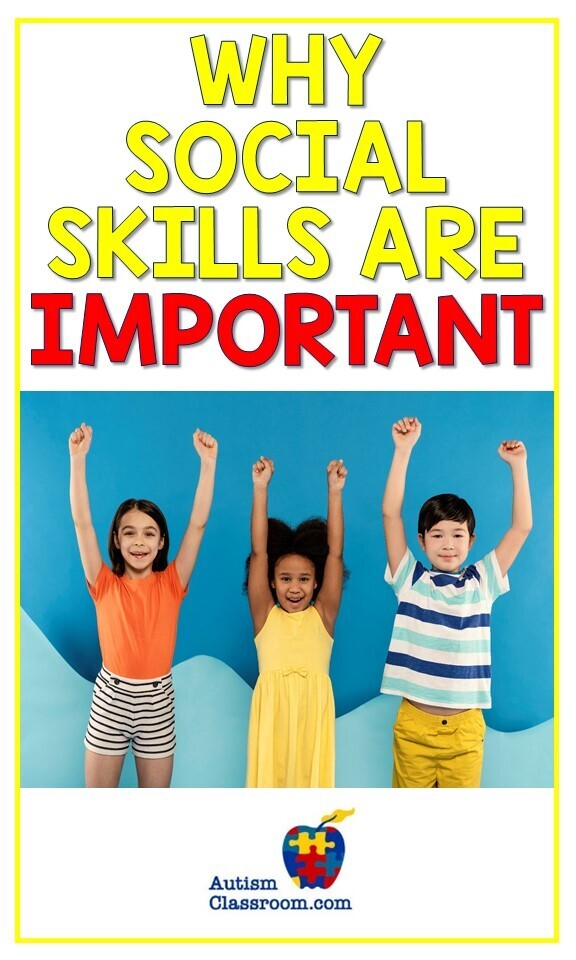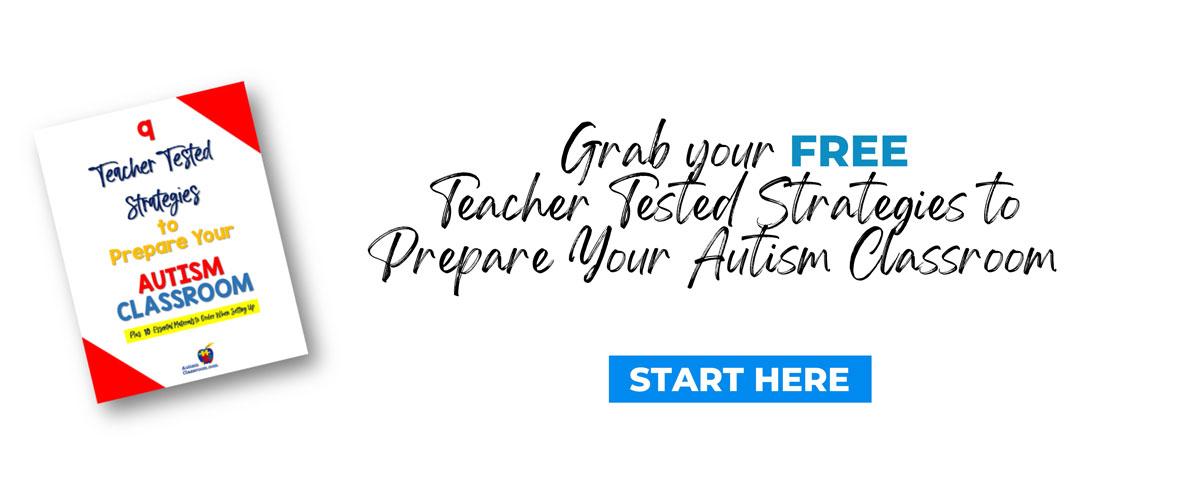
In an educational setting, it can be all too easy to focus on building academic skills alone. After all, some think that learning how to read, write, and problem solve is all a student with autism needs to succeed, right?
That couldn’t be further from the truth. While teaching academic skills can greatly aid in a student’s future, it’s arguably more important for a student to develop social skills. After all, how could you find a great job if you didn’t know how to network and how could you have made it through rough days without the support of your friends?
When many people with autism already struggle with developing good social skills, it can sometimes be even harder for students with autism to navigate this difficult realm. That’s why it’s so crucial that educators and parents begin teaching key social skills. Here you will see the top 3 reasons why direct social skill instruction and intervention can benefit students with autism. Also, why social skills are important for students to learn as part of their daily instruction.
Support System
Contrary to the stereotype that people with autism don’t have any desire to strike up a social life, many on the spectrum do want social interaction, even as young children. However, this need is a difficult thing to navigate for some people. Even if they want to, sometime not knowing what to do or not remembering what to do can be an issue. It is difficult for students to develop a foundation in social skills when they are younger if it is not being taught.
If they did get some social skills instruction, the hope is that there might be better peer interactions, reduced problem behaviors, and even better academic performance. Overall, probably the biggest benefit is that they can build up a better support system of friends, family, mentors, and co-workers to help them as they navigate the challenges of life. Knowing when to ask for help and how to create better relationships is key for anyone to succeed in today’s world. Any social skills improvement system will include a good support system.
Social Blindness
Many times, it is hard for someone without autism truly understand autism when we’re looking from the outside in. Often, this leads us to take our social skills completely for granted, where we’re not consciously aware of our ability to instantaneously interpret social cues, craft our responses, and intuitively know the world’s unwritten social rules. Imagine just how difficult it would be to not understand how to process your complex emotions or if you completely blanked on what to do when you got embarrassed or jealous. Think of the times when we try to understand how the people in our lives are feeling, and then picture just how much harder this would be for people with autism.
By being taught various social skills, students on the spectrum may experience far fewer gaps in socializing and lower levels of stress related to social situations. Some individuals are fine with that and others might want to engage a bit more. However, they are having some trouble reading social cues. For those that do, we truly understand the importance of building these skills.
Social Complexity
As you might know yourself, life isn’t one big social script that you can easily follow and succeed. Throughout the process of growing up, you might have internalized multiple social scripts for a ton of social settings that a person with autism might not intuitively understand. That’s what social complexity is. For instance, think about the way you greet people. How you say hello to a child at the mall might differ from how you greet your best friend. This extends beyond greetings to eye contact, gestures, empathy, and far more. Introducing a person with autism to the social complexity of many social situations can help them better understand what to do in such situations. But that takes time. It also takes practice. You may even try some social skills role play to help work through a potential social situation. Keeping in mind that each trial will be a little different and that can provide a glimpse into social complexity. Here are some social skills strategies.
Moving Forward
So whether if you are working on social skills for kids, social skills activities for teens, or social skills for adults, just allowing the space to discuss this topic is huge. Without a doubt, social skills are needed for a person on the spectrum to succeed not only in the classroom, but far beyond. It’s integral for their mental health and their relationships with classmates, family members, co-workers, and friends. By incorporating Social Skills Training into your classroom and learning about important interventions and instructional methods, you could begin to make a big difference in the lives of those on the spectrum in their classroom, home, workspace and community.
More Articles on Social Skills
Using Social Skills Worksheets to Craft a Social Skills Classroom Program
5 Strategies to Teach Social Skills for Autism Support Classes
Social Skills Training for Students with Autism
Why Social Skills Are Important
Summer Social Skills Activities for Kids with Autism When Summer Camp is Not an Option


